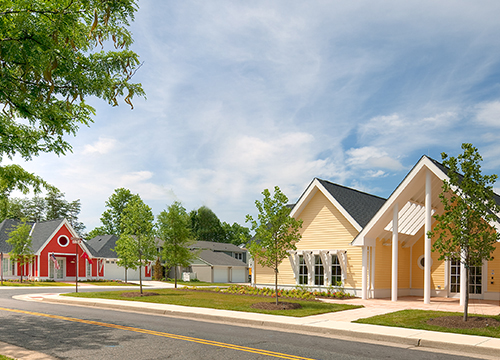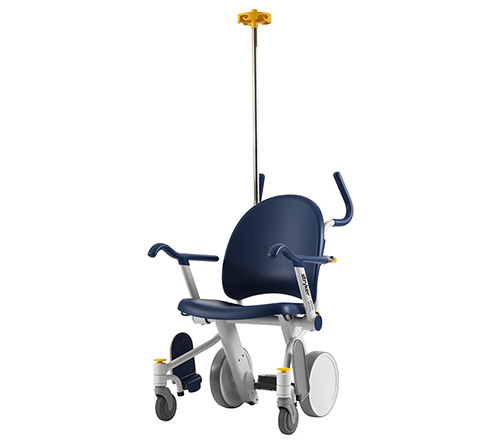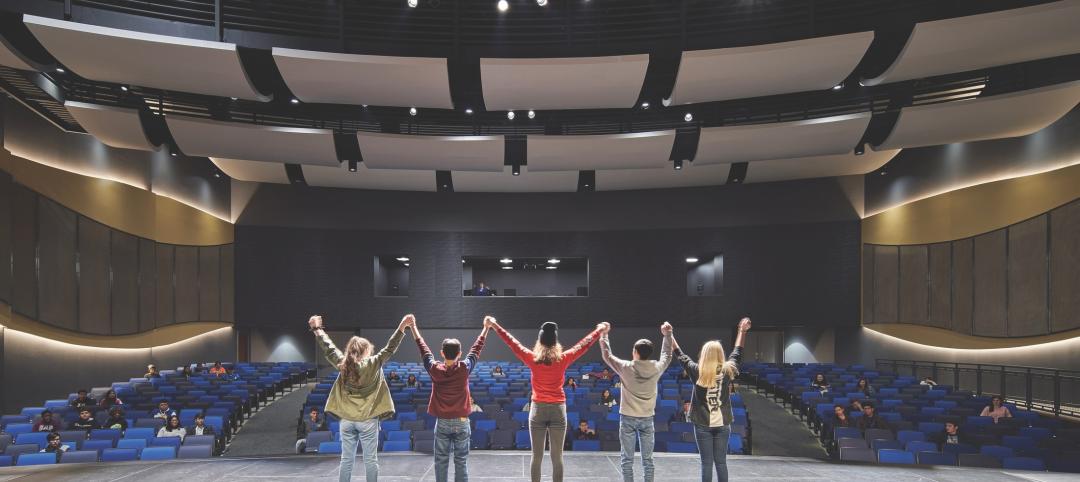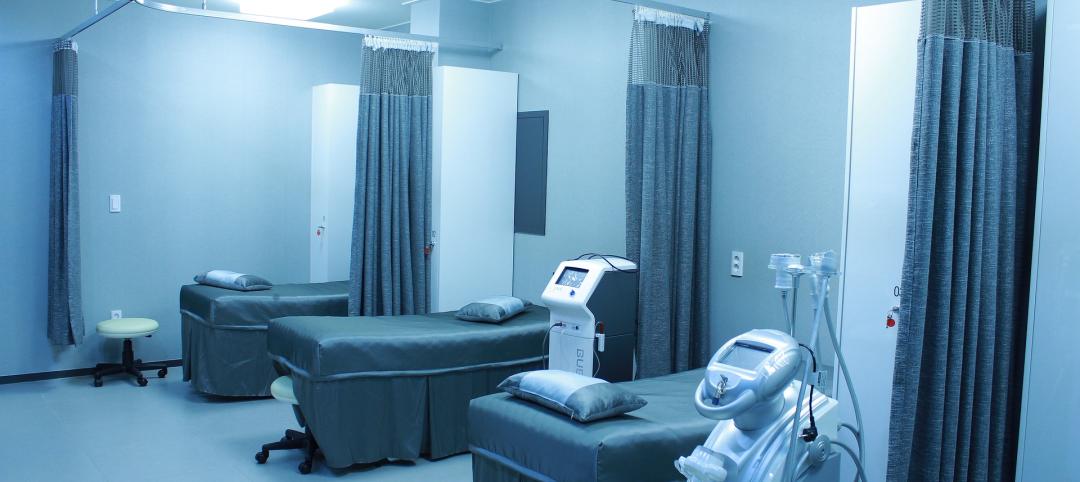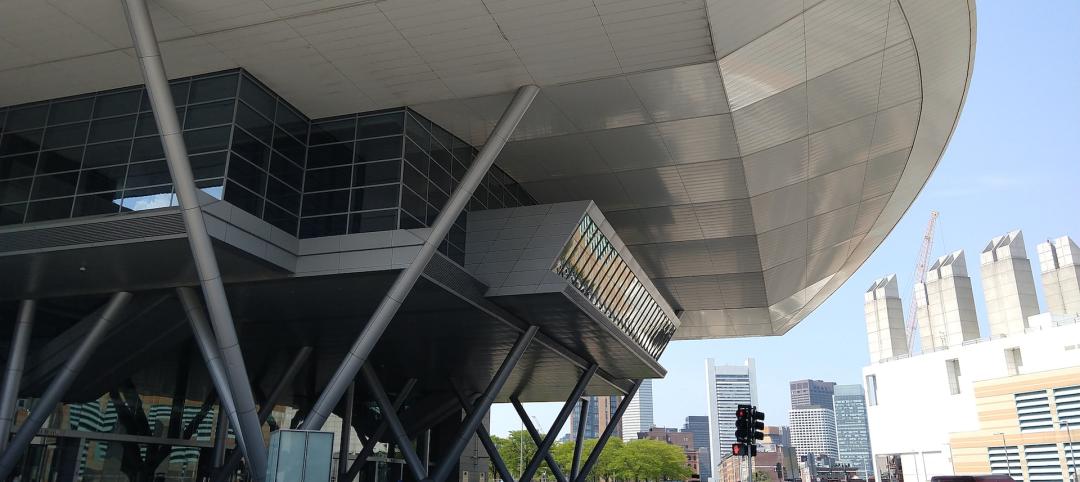He is one of the nation's most prominent and celebrated architects. He’s designed everything from hotels for Disney to civic buildings, such as the municipal center in Portland, Ore.
In the late 1970s, he entered the world of industrial design after an invitation from Italian company Alessi to design a coffee and tea set. In 1984, his kettle design for Alessi became a hit, and until this day remains the company’s number one bestseller. In the late 1990s he started designing everyday items for Target, which made him even more of a household name.
In sum, his signature style was ubiquitous, and he was heralded for bringing sophisticated design to the masses.
If anything, the mysterious virus he contracted in 2003 that led him to paralysis from the chest down was a catalyst that pushed him to have an even wider design focus.
He recently sat with Barbara Sadick of the Washington Post to talk about working as a full-time architect as he lives in a wheelchair.
“I believe well-designed places and objects can actually improve healing, while poor design can inhibit it,” he told the Post. “This became very real to me after my illness, so since then I’ve asked my design team to spend a week in a wheelchair.”
Graves further shares that good design for the ill and disabled isn’t just about accessibility, but also beauty. “Beauty can reduce stress and make us feel better,” he said, and adding that good design makes work easier for the caregivers, professional, or family.
To date, Graves keeps busy with multiple projects, many of them related to designing healthcare buildings, where Graves can use his expertise and personal experience to good use. Among these are a rehabilitation hospital in Lincoln, Neb., for people with traumatic brain and spinal cord injuries, and a new unit at Yale-New Haven Hospital that offers acute care for the elderly.
In industrial design, Graves is working with a health technology firm to design hospital room products that, as the Post describes, “will be not only easier for those with disabilities to use, making falls less likely, but also more attractive than what is found in many hospital and rehab rooms and much easier to clean.”
All of these projects, of course, will have Graves’ signature, whimsical, post-modern look and use of bright colors.
“Who wants to recover,” he tells the Post, “in a place where everything is beige?”
Read the full Washington Post profile.
The Wounded Warriors Home project in Fort Belvoir, Va., designed by Graves in partnership with Clark Realty Capital.
Prime Transport Chair for Srtyker Medical. Image courtesy of michaelgraves.com
Related Stories
Sponsored | BD+C University Course | Jan 17, 2024
Waterproofing deep foundations for new construction
This continuing education course, by Walter P Moore's Amos Chan, P.E., BECxP, CxA+BE, covers design considerations for below-grade waterproofing for new construction, the types of below-grade systems available, and specific concerns associated with waterproofing deep foundations.
Sponsored | Performing Arts Centers | Jan 17, 2024
Performance-based facilities for performing arts boost the bottom line
A look at design trends for “budget-wise” performing arts facilities reveals ways in which well-planned and well-built facilities help performers and audiences get the most out of the arts. This continuing education course is worth 1.0 AIA learning unit.
Giants 400 | Jan 15, 2024
Top 130 Hospital Facility Architecture Firms for 2023
HKS, HDR, Stantec, CannonDesign, and Page Southerland Page top BD+C's ranking of the nation's largest hospital facility architecture and architecture engineering (AE) firms for 2023, as reported in the 2023 Giants 400 Report.
Airports | Jan 15, 2024
How to keep airports functional during construction
Gensler's aviation experts share new ideas about how to make the airport construction process better moving forward.
Adaptive Reuse | Jan 12, 2024
Office-to-residential conversions put pressure on curbside management and parking
With many office and commercial buildings being converted to residential use, two important issues—curbside management and parking—are sometimes not given their due attention. Cities need to assess how vehicle storage, bike and bus lanes, and drop-off zones in front of buildings may need to change because of office-to-residential conversions.
MFPRO+ News | Jan 12, 2024
As demand rises for EV chargers at multifamily housing properties, options and incentives multiply
As electric vehicle sales continue to increase, more renters are looking for apartments that offer charging options.
Student Housing | Jan 12, 2024
UC Berkeley uses shipping containers to block protestors of student housing project
The University of California at Berkeley took the drastic step of erecting a wall of shipping containers to keep protestors out of a site of a planned student housing complex. The $312 million project would provide badly needed housing at the site of People’s Park.
Giants 400 | Jan 12, 2024
Top 10 Casino Architecture Firms for 2023
JCJ Architecture, HBG Design, Gensler, and WATG top BD+C's ranking of the nation's largest casino architecture and architecture engineering (AE) firms for 2023, as reported in the 2023 Giants 400 Report.
Senior Living Design | Jan 11, 2024
Designing for personal technology is crucial for senior living facilities
Today’s seniors are increasingly tech savvy. It isn’t enough to give senior living residents a pre-determined bundle of technology and assume that they’ll be satisfied.
Giants 400 | Jan 11, 2024
Top 40 Convention Center Architecture Firms for 2023
TVS, Populous, Arcadis North America, Gensler, and EUA top BD+C's ranking of the nation's largest convention center and event facility architecture and architecture engineering (AE) firms for 2023, as reported in the 2023 Giants 400 Report.



